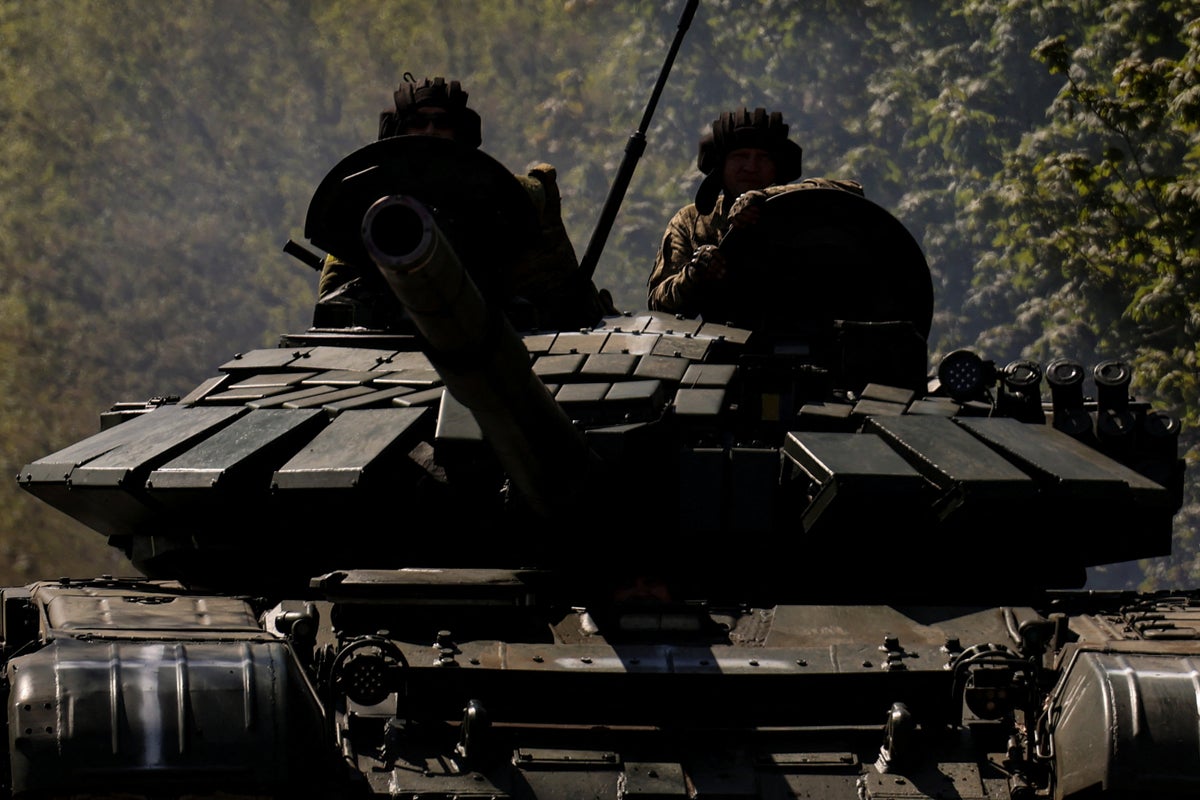
Russia has acknowledged that some of its soldiers have fallen back north of the city of Bakhmut in a retreat that the head of the Wagner mercenary group has called a “rout”.
It is the first admission from Moscow’s Defence Ministry that Ukraine has been successfully regaining ground around Bakhmut, which Russia has been trying to take control of for months.
It comes on the day Ukraine also announced they had retaken around 2km (1.2 miles) of territory south of Bakhmut during this week.
The eastern city, which has been the scene of some of the bloodiest fighting of the war, has taken on a particular symbolic significance that outweighs its size. Moscow has said it is a stepping stone to other cities in the larger Donbas region.
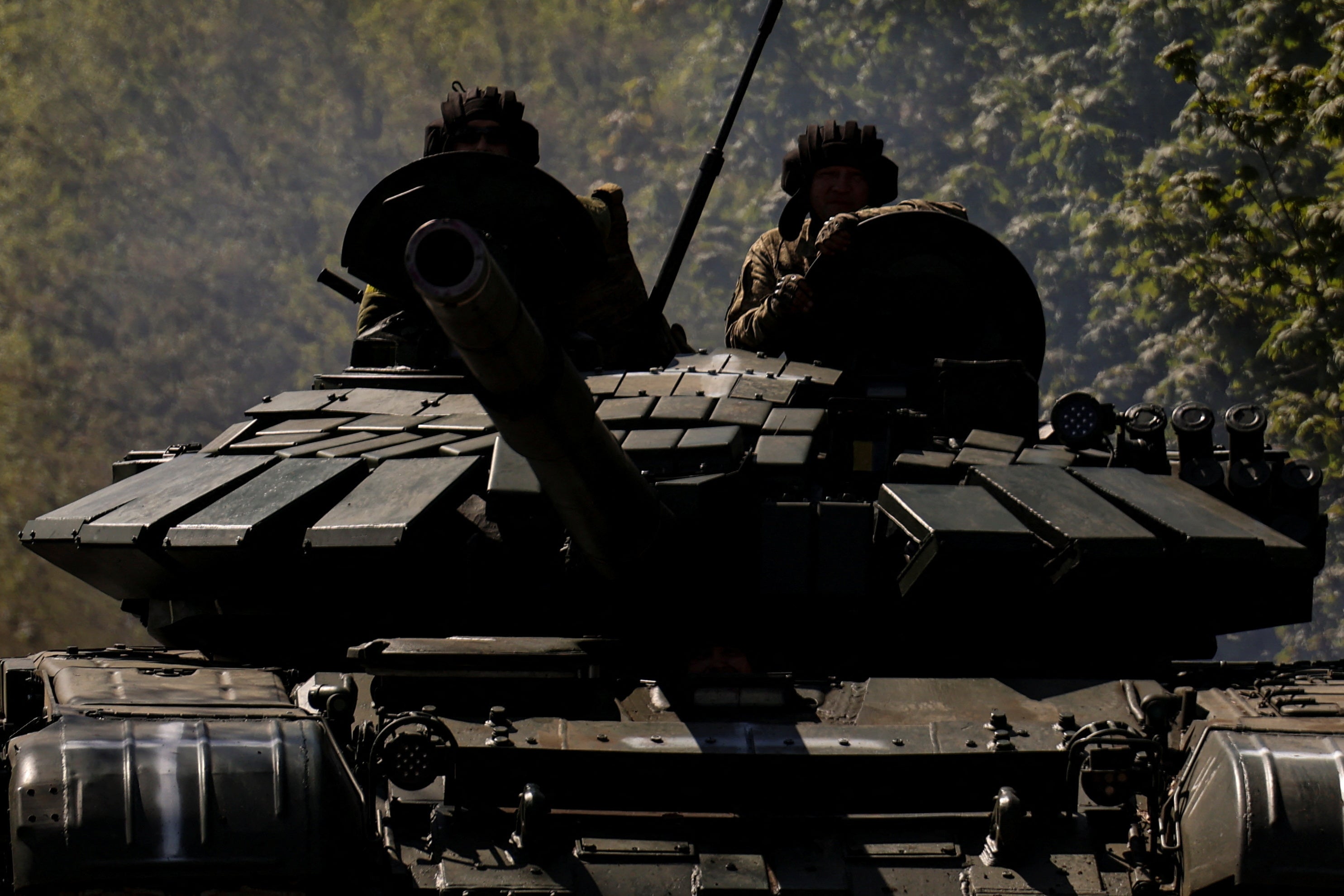
Donbas contains both the regions of Donetsk – where Bakhmut is located – and Luhansk, both areas that Russia wishes to possess. Given the length and ferocity of the battle to control Bakhmut, neither Kyiv or Moscow want to give it up.
The setback for Russia suggests a coordinated push by Kyiv to encircle Russian forces in Bakhmut. The new advance this week would mark the biggest Ukrainian gains in the area for months.
Russian Defence Ministry spokesperson, Igor Konashenkov, said Ukraine had launched an assault north of Bakhmut with more than 1,000 troops and up to 40 tanks, a scale that if confirmed would amount to the biggest Ukrainian offensive in some time.
The Russians had repelled 26 attacks but troops in one area had fallen back to “regroup” in more favourable defensive positions near the Berkhivka reservoir northwest of Bakhmut, Mr Konashenkov said.
Yevgeny Prigozhin, head of the Wagner forces that have led the campaign in the city, said in an audio message: “What Konashenkov described, unfortunately, is called ‘a rout’ and not a regrouping.”
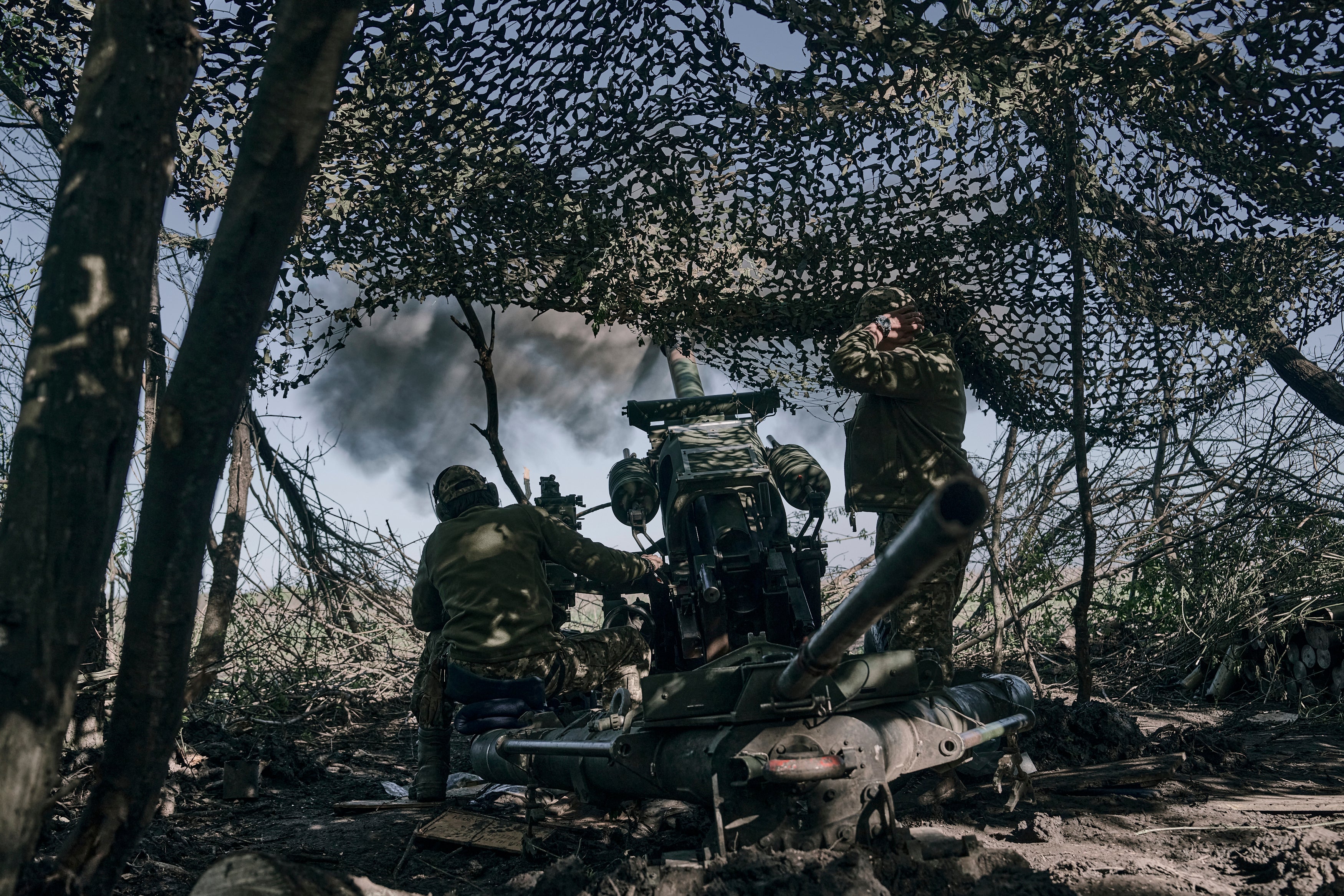
In a separate video message, Mr Prigozhin said the Ukrainians had seized high ground overlooking Bakhmut and opened the main highway leading into the city from the west.
“The loss of the Berkhivka reservoir – the loss of this territory they gave up – that’s five square kilometres, just today,” Mr Prigozhin said.
The Wagner chief has repeatedly hit out at the Defence Ministry in recent weeks for not providing his group with enough ammunition and supplies to take Bakhmut, threatening to withdraw his forces from around the city more than once. It is part of a larger spat between Mr Prigozhin – a long-time ally of Russian president Vladimir Putin – and defence and military officials in Moscow which has been rolling on since last year.
Mr Prigozhin again accused the military leadership of refusing to provide the necessary ammunition to Wagner around Bakhmut.
“You must immediately stop lying,” Mr Prigozhin said, addressing the Russian military leaders. “If you fled, you must prepare new defensive lines.”
Mr Prigozhin claimed that the Defence Ministry’s failure to protect Wagner’s flanks amounted to high treason and could result in a “great tragedy” for Russia.
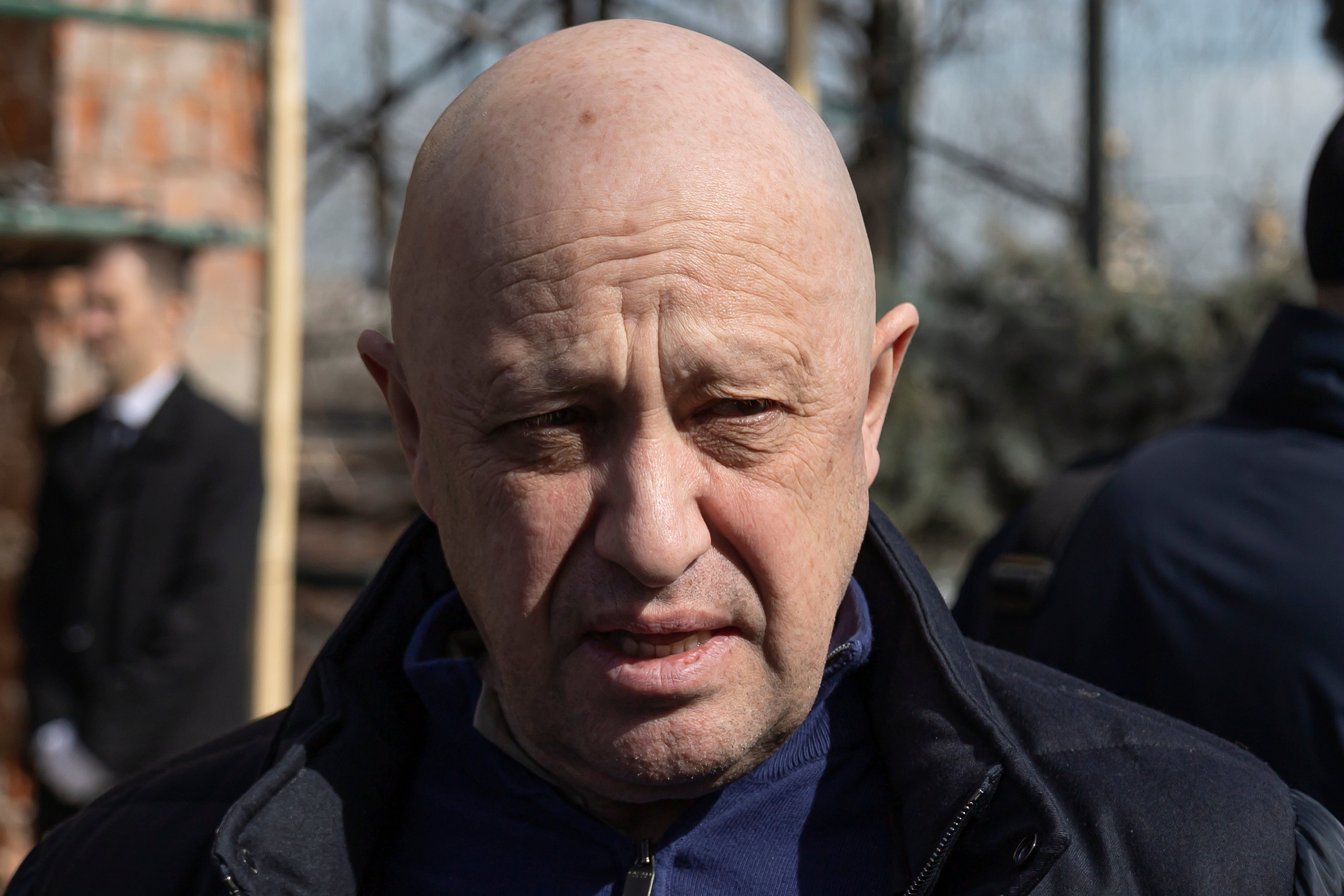
The 2km of territory retaken by Ukrainian forces south of Bakhmut this week also represented a significant gain and will protect an important supply chain, according to commanders of Ukraine's 3rd Separate Assault Brigade, a special forces unit that led the attack.
Ukraine's president Volodymyr Zelensky said he met with the top military commanders on Friday, noting that he heard a report from the commander of the nation's ground troops, General Oleksandr Syrskyi, whose forces "stopped the enemy and even pushed him back in some directions".
In his nightly address to the Ukrainian people, Mr Zelensky praised his troops and noted the low morale of the Russian forces.
“The occupiers are already mentally prepared for defeat. They have already lost this war in their minds,” he said.
“We must push them every day so that their sense of defeat turns into their retreat, their mistakes, their losses.”
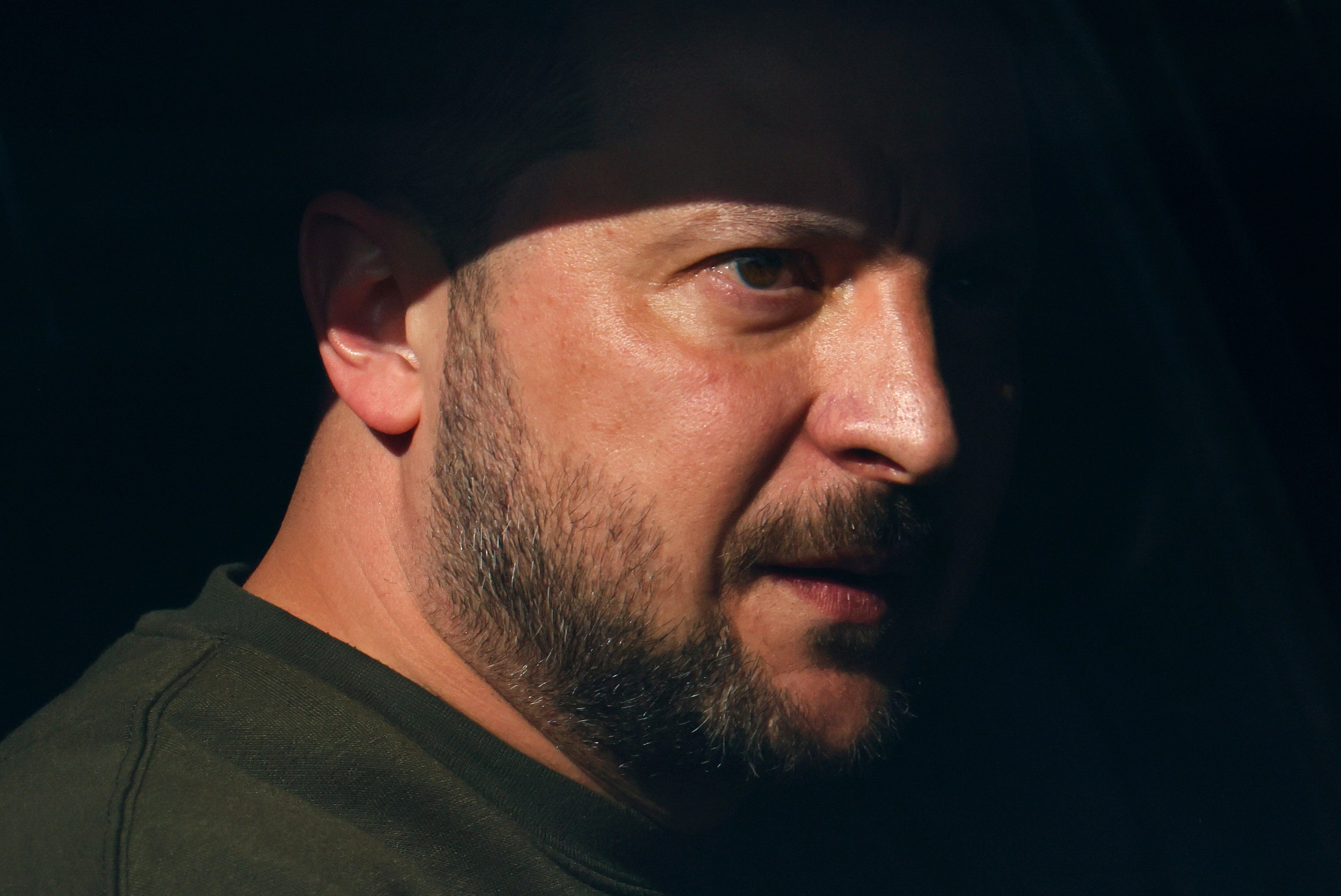
In a statement on Telegram on Friday, deputy defence minister Hanna Maliar confirmed that Ukrainian forces gained ground around the city, reiterating statements from military commanders earlier this week.
The 15-month-old war in Ukraine is at a turning point, after six months during which Kyiv kept its troops on the defensive while Russia mounted a winter campaign across the east and south of the country that brought bloody combat, but few territorial gains.
It has long been anticipated that Ukraine would launch a counteroffensive to recapture occupied territory.
Ukrainian officials have played down the suggestion that their offensive is already underway. Mr Prigozhin has called that deceptive and said the Bakhmut advances amounted to the start of Kyiv’s campaign.
Moscow has been preparing since last autumn for an expected onslaught, and has built lines of anti-tank fortifications hundreds of miles long. It has begun evacuating civilians who have been living near the conflict zone in Ukraine's partially occupied Zaporizhzhia province.
“We used to go out and watch (the shelling). Especially at night, you could see the flashes as they launch,” Lyudmila, a 22-year-old from Kamianka-Dniprovska now in makeshift accommodation in the Russian-controlled Ukrainian port of Berdyansk told Reuters.
“We’ve had shells land nearby and when it landed the entire sky was red,” she said.
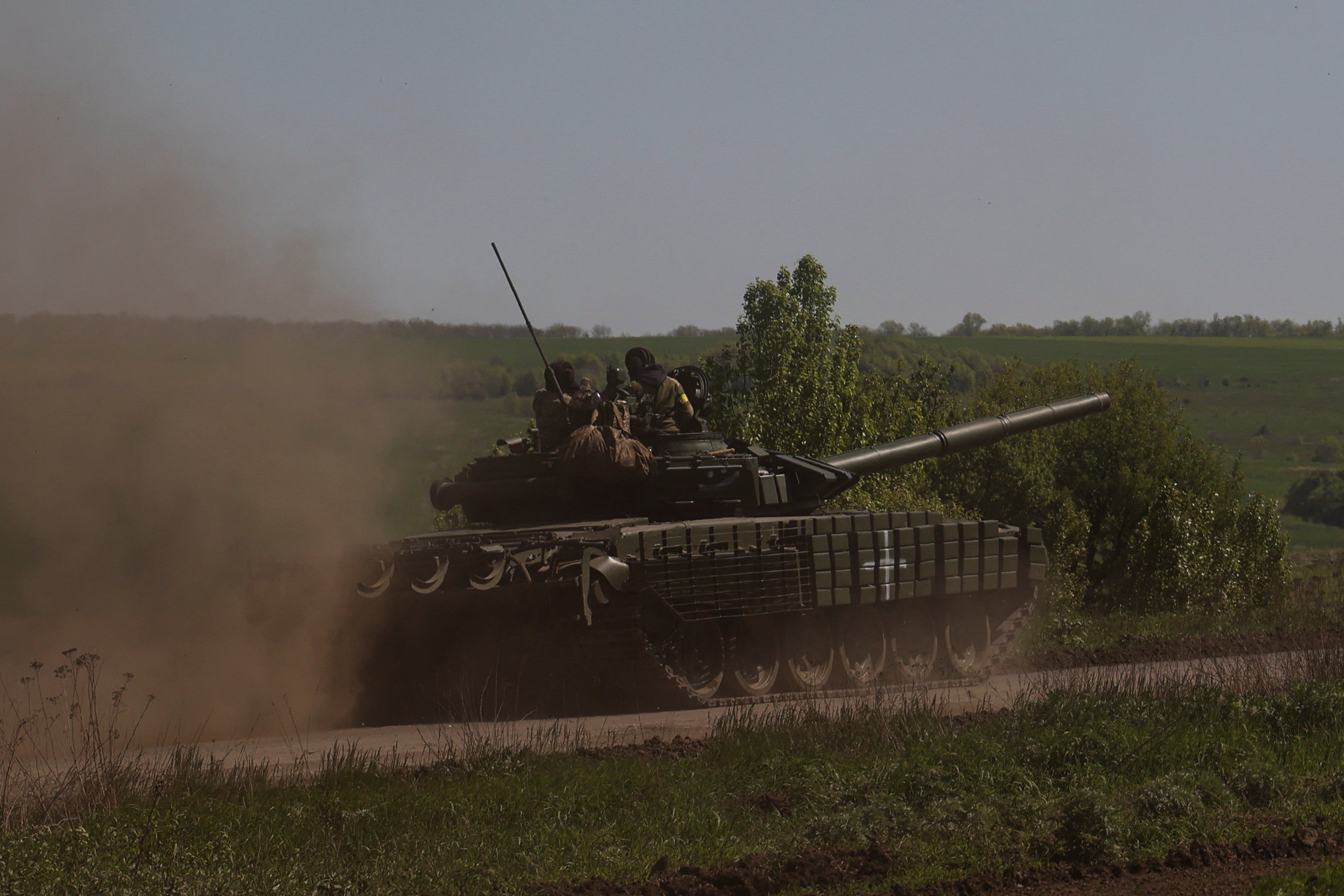
In other fighting, at least two people were killed and 22 injured elsewhere in Ukraine since Thursday, according to figures from the Ukrainian President’s Office.
Donetsk governor Pavlo Kyrylenko said a Russian strike hit the city of Kramatorsk, where some Ukrainian military units are based, destroying a school and residential building. Russian shelling hit 11 cities and villages in the region, killing 12 civilians, he said.
Mr Zelensky, who has been rallying his country for the planned offensive, said in a social media post that “our path ahead is not easy”, but Ukraine was “much stronger now than last year or in any other year of this war for freedom and independence of our country”.
Since the start of this year, Kyiv has received hundreds of new Western tanks and armoured vehicles, holding them back in preparation for the offensive.
On Friday, Mr Zelensky thanked the prime minister, Rishi Sunak for the donation of Storm Shadow cruise missiles that would mark a “significant enhancement” of Ukraine’s efforts in the fight against Russia’s invasion.
After a call with Mr Sunak on Friday, the Ukrainian president said the two leaders had discussed “further cooperation” on defence.
It came after the defence secretary, Ben Wallace, confirmed to MPs that he and Mr Sunak had agreed to authorise the donation of long-range cruise missiles after continued Russian attacks on Ukraine.
Reuters and the Associated Press contributed to this report







